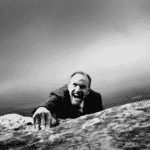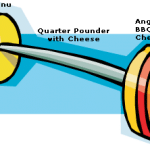Paid Facebook advertising for health clubs and fitness businesses offers an affordable, more engaging and better-targeted alternative to Google Adwords pay-per-click campaigns.
Once you understand the unique strengths and challenges of Facebook ads, this tool can be an extremely valuable add to health and wellness marketing campaigns.
What is Facebook paid advertising?
Facebook offers two basic kinds of paid advertising.
Boosted posts
You can pay Facebook to “boost”, or promote, content you post on your business page. In exchange, Facebook inserts your boosted post in the newsfeeds of selected users. Worth noting: boosted posts aren’t a pay-per-click campaign. You’ll pay per impression, whether anyone clicks, watches, likes, shares…or not.
Boosted posts offer several advantages:
- Boosted posts show up higher in newsfeeds on both Facebook and Instagram (also owned by Facebook).
- You control your budget, based on how many people you want your boosted post to reach.
In many local markets, boosted posts are extremely affordable. You can reach several thousand people for less than $100.
- You can target people who already “like” your page, people who “like” it plus their friends, or people your business has zero current connection to.
- You can precisely dial in your audience.
You can define your audience to more precisely dial in your likely viewers, or to expand your reach to a much broader audience. That can be especially helpful if you’re adding new programs or services that might appeal to new market segments that haven’t historically had any reason to know your business exists.
Freestanding ads
Facebook also offers freestanding ad campaigns. You set a daily budget and choose when you create the ad whether you want to pay per impression or per click.
These ads have nothing to do with posts to your business page. Instead, you create a separate ad – either a single image or a video – choose your audience, set your budget, and choose the dates you want the ad to run. Facebook then inserts the ad into users’ newsfeeds. There is no requirement whatsoever that they “like” or “follow” your page.
Facebook’s freestanding ad campaigns offer several advantages over Google AdWords:
- You control the timing of communication. AdWords is reactive – your ad appears only in response to a search. Facebook advertising happens when you want it to.
- Facebook also allows much more precise targeting. Does your health club wants to advertise a specialty personal training program to women in their 40s with demonstrated interest in knee pain and knitting, who live within a 10-mile radius, who visited your website recently?
- Go ahead, you can do that on Facebook. AdWords, on the other hand, relies primarily on geo-targeted, keyword targeting, and remarketing.
- You can also engage with prospects. People can comment, share and like your ad (and they will, if you run a great ad!). And your business can respond. Can’t do that in AdWords!
- Facebook ads catch the eye. Photos, videos, audio – it’s all there, with links to your website or landing page. On the other hand, even AdWords newly-expanded text ads are still….text ads. Your message is often truncated due to space, and it’s very difficult to stand out from the crowd.
How to make Facebook advertising work for your fitness or wellness business
Set up conversion actions
Just as in AdWords, it’s essential that you define in advance what “success” looks like.
Is it a visit to a particular page on your website? Is it completion of a form? Or something else?
Choose what makes sense for your campaign and use features like Facebook’s conversion pixel to automatically track it.
You need this information to assess payback and ROI of your Facebook advertising campaigns.
Step up your advertising game
You need persuasive copy plus strategic graphics and the right linked content. Think of it as a complete communication package, not just an ad.
Your investment will be wasted if your marketing team just throws up another stock image (or heaven forbid, a PDF of a flyer) and a stale call-to-action.
Facebook has also made it clear that it prefers video ads to single image ads. (It essentially disallows text-heavy ads – more on that below).
Why? Video is far more engaging than a single-image ad. They want the same thing you do – they want users to pay attention to ads.
Fortunately, video ads these days are far more affordable than they were back in the old days of TV advertising. Don’t overthink these ads – they shouldn’t take weeks and cost thousands to produce. Facebook-savvy marketing specialists can develop great concepts and turn them around in 2 – 3 weeks max, often less, mixing persuasive copy with imagery you provide, enhanced stock images and video, and inexpensive royalty-free music.
Tell a story
We created a targeted Facebook campaign for a client recently that generated 500 conversions in a single week. Average cost per conversion: less than a dollar.
Why? The ad pulled Facebook users in with a story. You’ve got to engage the hearts of your audience before you can engage their minds.
The most successful Facebook ads usually aren’t typical in-your-face special offers or discounts. (No “Spring Into Summer” or “Fall Into Savings” promotions, please!)
They create emotional connections, leave a lasting impression and draw viewers in so that they really remember your wellness business.
Align your message and your audience
Make sure your ad’s message and your targeted audience are in sync.
Health clubs and fitness businesses love the ability to target a particular audience – for instance, weekend warriors or gym novices – but in our experience, you’ve got to target your message as well.
A generic one-size-fits-all message to “tour our club” or get a “free 7-day pass” or “come in for a free assessment” just isn’t as effective.
Avoid text-heavy ads
Facebook doesn’t want text-heavy ads. Until recently, it kicked back ads with more than 20% text. Now, it’ll let you run the ad – but it pushes it WAY down in users’ newsfeeds if it has excessive text.
Any marketing professional will tell you that it’s easy to write pages and pages of copy.
What’s hard? Crafting short copy – what we sometimes call “writing haiku.” The ideas behind the classic Japanese poetry form and effective Facebook ad copy are the same: communicating a lot with a few carefully-honed words that instantly connect with your likeliest customers.
Follow the “personal characteristics” rules
Health and wellness businesses, specifically, can also run into problems with ad copy that triggers Facebook rules limiting the mention of personal characteristics.
For example, ads cannot imply that the viewer has a disability or a physical or mental health issue. Figuring out how to write copy or produce a video that avoids this problem while acknowledging that the viewer may want to make a lifestyle change is one we’ve had to overcome on a regular basis, since many fitness and wellness businesses are medically-oriented, provide healthcare, or work to help customers improve their own health through diet and exercise.
Watch out for supplements
Restrictions also apply to ads promoting dietary or herbal supplements, and to MLM/network marketing businesses, which can sometimes affect health clubs that promote certain brands of supplements through affiliate arrangements.
To advertise on Facebook, or not to advertise: that is the question.
If your club is looking to engage prospective customers more directly than simple search ads, more fully and in-the-moment than print media, and less expensively than radio or TV, Facebook advertising may be the right way to go. Just remember, it’s its own medium with its own rules, and the more you understand how the Facebook advertising world works, the more successful you’ll be.




